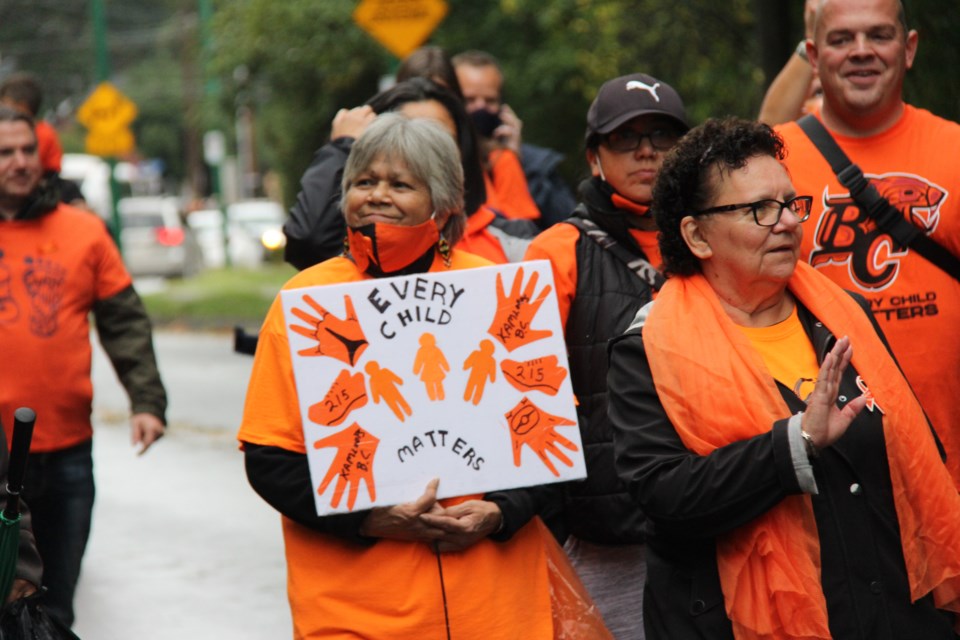There’s no sugarcoating it – 2021 was not an easy year for a lot of us. But, some clear-eyed self-reflection at the end of it will find a nuanced tale filled with progress, bumps along the road, and moments that have inspired personal and societal change.
Truth and Reconciliation
Truth and Reconciliation became one of the defining issues of 2021. Although Indigenous families long knew about children who never came home, the discovery of unmarked graves alongside residential schools shocked many Canadians out of complacency.
The Sḵwx̱wú7mesh Úxwumixw (Squamish Nation) announced in August they would lead an investigation into possible remains at the former St. Paul’s Indian Residential School, where more than 2,000 children from the Squamish, Tsleil-Waututh and xʷməθkʷəy̓əm (Musqueam) Nations were forced to attend.
Survivors of St. Paul’s and other residential schools shared their stories with us and, on the first National Day for Truth and Reconciliation, our reporter Elisia Seeber travelled with a pilgrimage walk from the Tsleil-Waututh’s land to the site of St. Paul’s in memory of victims and survivors.
Pandemic progress and setbacks
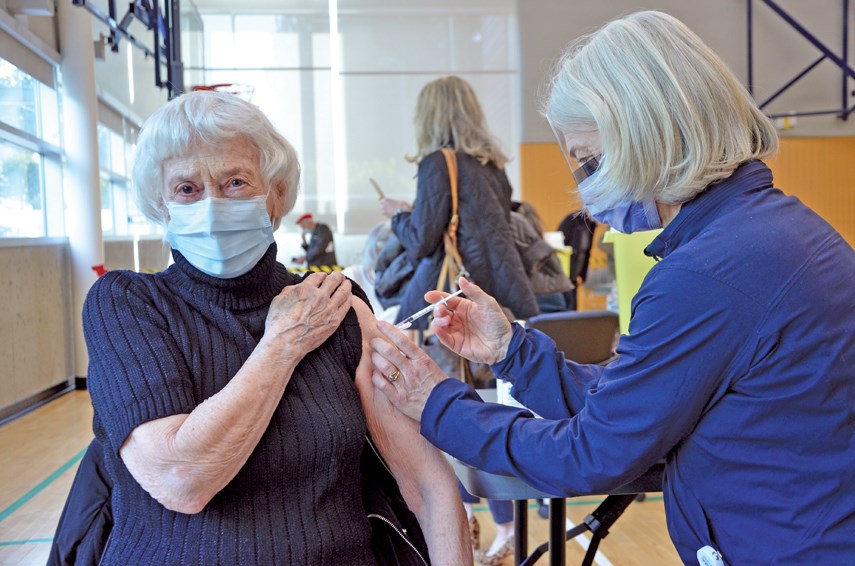
COVID-19 vaccinations for the general public began rolling out in March. There was a lot of squabbling over who should be at the front of the line. North Shore care homes and Lions Gate Hospital were still having outbreaks, prompting questions about whether vaccinations should be mandatory for staff. Even after long-term care residents were vaccinated, the families still reported difficulties getting to visit them.
By July, every adult who wanted a shot could have one and new cases in the province had fallen to mid-double digits, bringing a feeling of optimism to the summer bliss. But, then came much more transmissible Delta variant, handing us a major setback. When it became clear that returning to the “old normal” would overwhelm our healthcare system, the first vaccine mandates and the return of indoor masks were announced by late summer.
As of Dec. 22, 94 per cent of North Vancouver residents over the age of 12 have had two doses of vaccines while 90 per cent of West Vancouver and Bowen Island residents had theirs. Kids over the age of five became eligible for smaller doses at the end of November and North Vancouver quickly shot to the top of the pack for communities getting their kids vaccinated.
Booster shots for health care workers, seniors and medically vulnerable people were ongoing through the fall with the wider public expected to get access in the New Year.
Despite the high rates of vaccination, mandates and masks, the year would end with the pandemic throwing at least one more major punch – the Omicron variant. The new restrictions introduced bring an eerie spring 2020 vibe.
Transportation
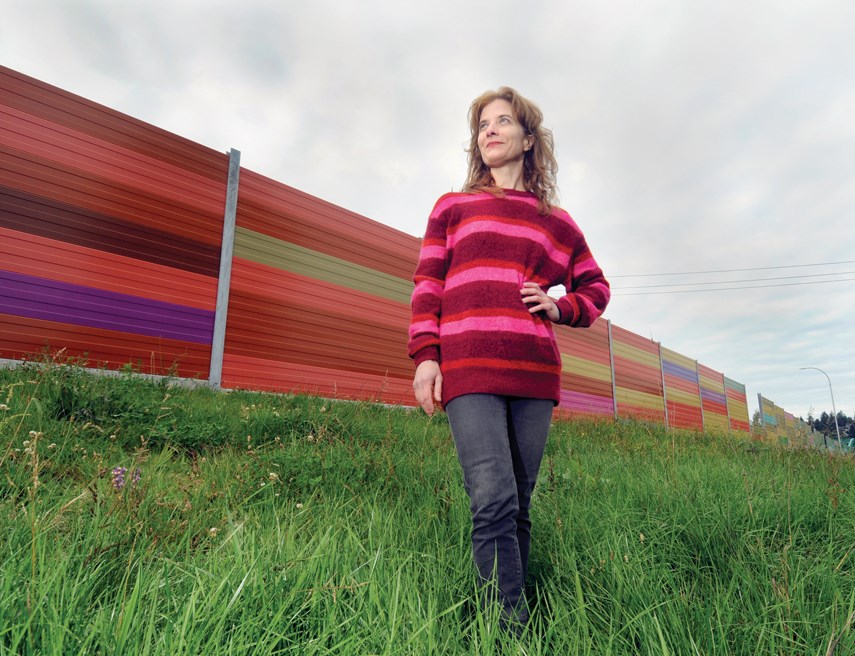
On the perennial transportation woes file, the North Shore saw some progress made.
After six long years, the Lower Lynn Improvement Project largely wrapped up in late fall. Although there are still traffic back-ups, ministry staff say the project has improved the flow of on Highway 1 as intended.
We also saw the launch of the Burrard Chinook, the newest SeaBus in the fleet. It is adorned with designs from three Indigenous artists.
The city and district launched Lime Bikes, the first e-bike share of its kind in B.C.
And, we received a long-awaited report examining a rapid transit line for the North Shore. It found a line connecting Metrotown or Hastings Street over the Second Narrows would eliminate 50,000 car trips per day off our bridges.
Snap election
In September, we went to the polls for a snap federal election. Prime Minister Justin Trudeau was gambling on swapping his minority government for a majority but, nationally and locally, the results were much the same as they were before. Meet the new bosses, same as the old bosses.
Crime and courts
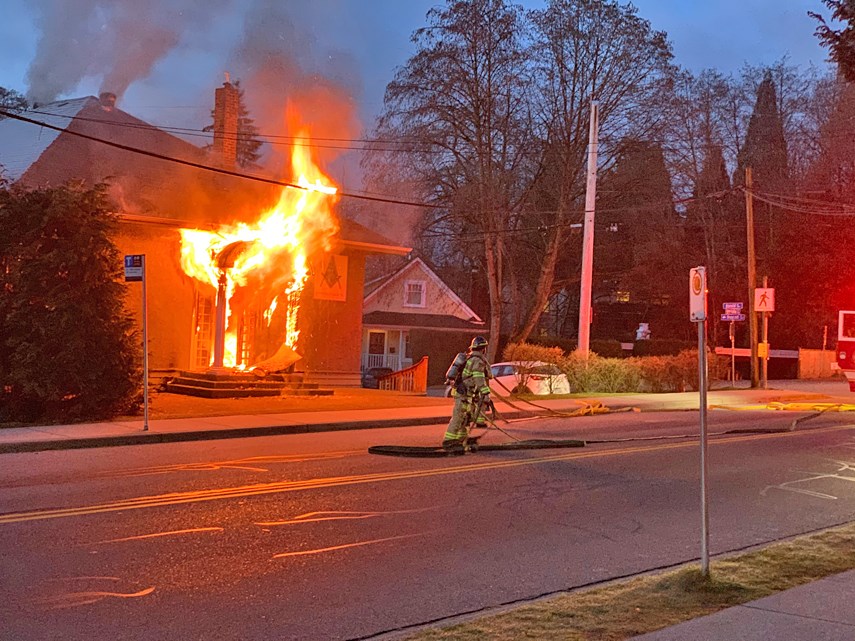
Tragedy struck in Lynn Valley in March when, unprovoked, a man went on a stabbing spree, leaving one woman dead and six people injured. The suspect, Yannick Bandaogo, was later charged. He remains in custody and will face trial in 2022 in New Westminster. Horrific as it was, the community pulled together in healing with a massive memorial, fundraising and public art pieces.
That same week, an arsonist torched two Masonic halls in North Vancouver. Benjamin Kohlman believed the Freemasons were trying to control people’s minds. He pleaded guilty in November and was sentenced to three years in prison.
An illegal pot shop owner was fined $250,000 for violating municipal bylaws.
Krisandra Jacobs, a former Squamish Nation council member, was found guilty of defrauding the nation out of about $1 million and using it for her own purposes. She will be sentenced in 2022.
Harry Jerome
Amateur athletes were caught off guard when they learned they were being turfed out of the Harry Jerome Community Recreation Centre by the end of the year, thanks to a decision by council to close the existing facility before the new one is built. The decision, which was made to save money, prompted a series of protests. Council did eventually relent in November, but not because that’s what Harry Jerome’s user groups wanted. A breakdown in the agreement between the city and the developer, Darwin Properties, means the rec centre will stay open until the new one is built.
Meanwhile, the city is working with the Squamish Nation to come up with a name for the new arena that honours their deep history in lacrosse. And when the new track outside West Vancouver Secondary is finished, it will be dubbed Harry Jerome Oval.
Jobs, jobs, jobs
Seaspan marked 10 years of building new ships for the federal government and signed a deal for a new icebreaker contract. The company’s proposal to expand their drydock west, closer to the Shipyards district rankled waterfront residents and council. A decision from the port is expected soon.
The North Vancouver Chamber sounded the alarm about labour shortages impacting employers and called for the municipalities to get more housing suitable for the local workforce built and better transportation options for getting staff here.
Outside the private sector, we reported on staffing shortages at Lions Gate Hospital, resulting in surgeries being delayed and cancelled, and paramedics too faced burnout from too many calls and not enough help.
Construction on our new sewage plant got into deep doo-doo when costs ballooned to over $1 billion and Metro Vancouver severed ties with Acciona Wastewater Solutions, the main contractor building the project.
Trail rescues
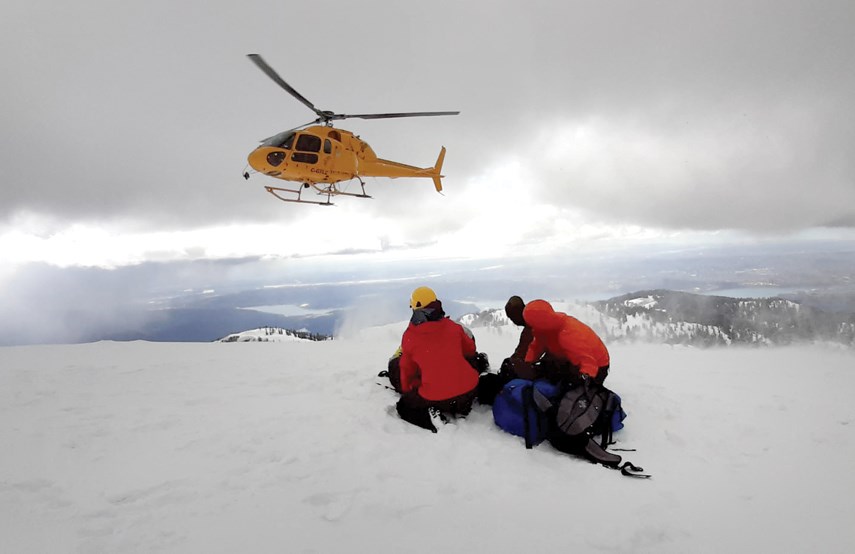
Much like 2020, our trails and mountains were overwhelmingly popular destinations for recreation for thousands of people. As of the time of this writing, North Shore Rescue had been called out 219 times for lost and injured. Their previous record in a year: 151.
In December, the province announced mandatory passes to park at the top of Mount Seymour.
House and home
On the housing front, we learned not even a global pandemic will bring down the cost of owning a home. Average North Vancouver and West Vancouver assessments were up between five and seven per cent, we learned in January.
The City and District of North Van advanced affordable housing projects on municipally owned land and within larger private developments, and West Van council voted to shrink down the max allowable size of mansions.
The Squamish and Tsleil-Waututh Nations both started their own affordable housing initiatives to ensure their members can keep close to their home communities.
Environment
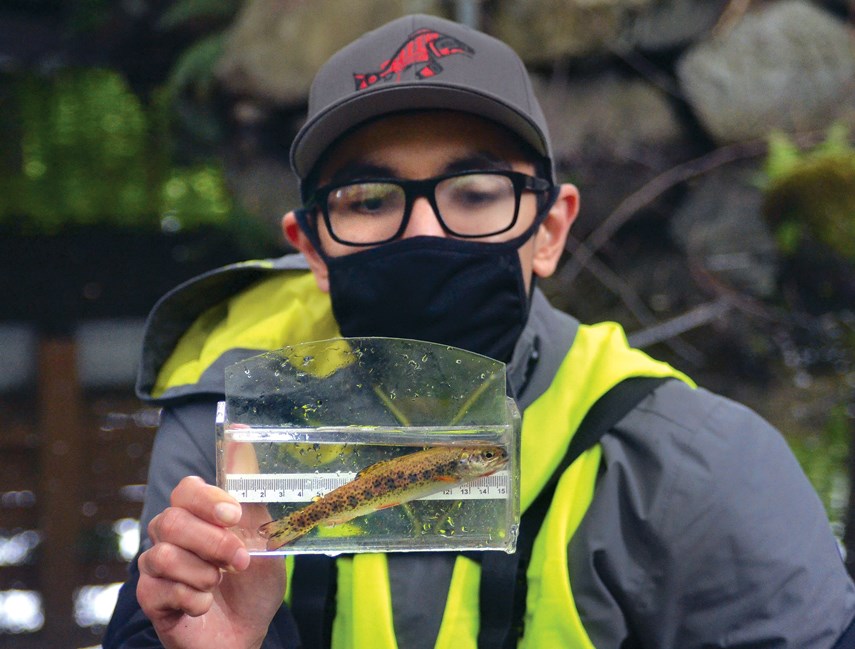
In late June, the province was trapped under an oppressive heat dome, sending temperatures into the 40s. Nine North Shore residents died because of the heat, the BC Coroners Service determined. Public discourse quickly shifted to the climate crisis.
The West Vancouver Streamkeepers Society conducted their first-ever spring survey of local streams finding a pleasant surprise – hundreds of juvenile cutthroat trout and coho smolt and fry.
The North Shore Streamkeepers toasted the return of salmon to Mosquito Creek for the first time since 2017 after a major habitat restoration project.
We also, however, had to run stories about local creeks being fouled by careless pollution and backups of the sewage system.
Although some trails were washed out and there were some wet basements, the North Shore was spared the worst of the Nov. 15 storm damage, thanks in large part to local governments spending millions on flood control, storm-water management and landslide risk mitigation.
Just weeks before, though, we ran a story about a geoscientist’s study warning the North Shore can expect a four-fold increase in the frequency of landslides in the future as a warming climate brings more violent storms.
